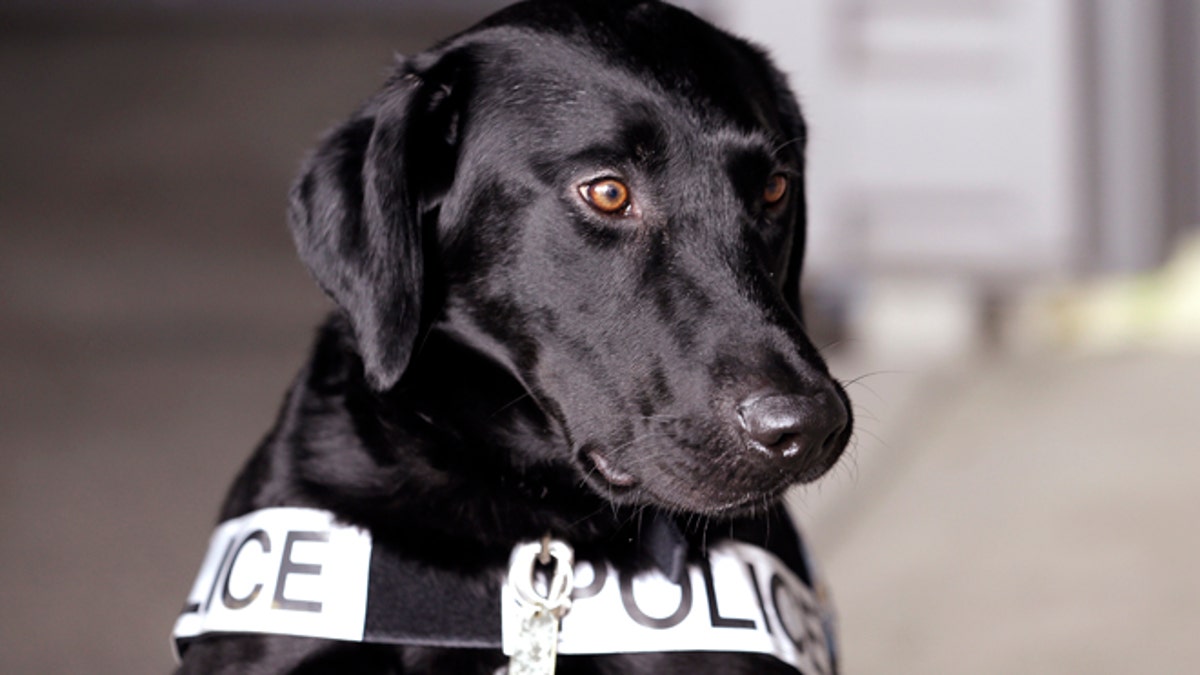
May 30, 2013: A drug-sniffing police dog is shown at a training session at a police station in Bremerton, Wash. (AP)
Police in Washington state and Colorado are trying to teach old dogs to unlearn an old trick.
For as long as dogs have been trained to assist police officers, they've been helping make drug busts. But now that the recreational use of marijuana is legal in those two states, officers are in a K-9 quandary.
"We'll have to look for other indicators," said Bob Calkins of the Washington State Patrol. "We'll have to develop cases other ways."
Adjusting to the new laws, the Washington State Patrol is training new dogs to not react to pot. Existing K-9 units will be phased out. And other agencies are forcing their drug dogs into early retirement and will go without them.
But Officer Darryl Lobe, who's been a K-9 handler in Bothell, Wash., for over a decade, says that's a big mistake.
"I've talked to individuals that I've arrested and they told me that without the dog, we wouldn't have gotten anything," Lobe said.
At issue is the legality of searches, now that possessing up to an ounce of marijuana is legal. Voter initiatives passed in Washington state and Colorado last November. Police departments are wondering if drug dog searches will violate citizen rights. They're also concerned about courts throwing out evidence of other crimes collected during a follow-up search, which could lead to dangerous criminals getting off on a technicality.
Mary Fan, a law professor at the University of Washington, thinks the state Supreme Court eventually will have to weigh in.
"It's legal to have marijuana," Fan said. "You're not just sniffing out illegal contraband, you're sniffing out my private, personal and legal under-state-law stash of marijuana."
Not everyone is proceeding with such caution. Tacoma police have no intention of retraining their drug dogs. Minors still can't possess any pot, large amounts remain illegal and there's still concern about trafficking from Mexico and Canada.
"Because there's so many different instances when it's illegal, why would we change the way the dog indicates?" said Officer Loretta Cool of the Tacoma Police Department.
Further clouding the debate is the fact that marijuana is still illegal under federal law. The U.S. Justice Department has yet to announce how it will handle the drug in Colorado and Washington.




